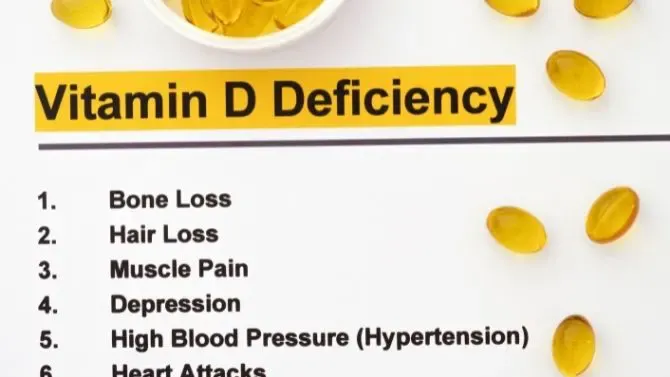The beneficial effects of vitamin D on our immune system

What is Vitamin D?
Vitamin D, also called "calciferol," is a pro-hormone. Thus, it is the precursor of the hormone calcitriol, which increases calcium absorption.This is why it is mainly known for its role in bone growth.
Vitamin D is produced naturally by the body, and it is synthesized by the skin under the action of UVB rays.
In addition to exposure to the sun, it is also provided through food and taking supplements. There are then two types of vitamin D:
- D2 or ergocalciferol of plant origin
- D3 or cholecalciferol is found in animal meat.
A significant role in immunity
Beyond its importance for bone health, it is also essential for the immune system. Many studies have thus confirmed the link between vitamin D and immunity.As such, the EFSA (European Food Safety Authority) authorizes the health claim: "Vitamin D contributes to the normal functioning of the immune system."
This fat-soluble vitamin circulates in the blood. Its receptors are present in almost every cell in the body, and they can regulate specific processes, turn them on or off.
In particular, they modulate the expression of HLA genes involved in immunity. Thus, vitamin D contributes to a healthy and functional immune response.
This is why a vitamin D deficiency results in a more straightforward contraction of diseases and infections. Supplementation may therefore be necessary and beneficial in winter.
Vitamin D benefits on the immune system

Vitamin D activates the immune defenses.
Vitamin D stimulates the body's immune defenses and, in particular, the T lymphocytes (white blood cells). Thus, these killer cells can better fight against bacteria, viruses and other infections.This study, for example, confirms its interest against acute respiratory tract infections: nasopharyngitis, bronchitis, pneumonia, etc.
In vitamin D deficiency, these white blood cells enter a dormant phase, and vitamin D helps to mobilize them and relaunch the immune response.
It also activates the enzyme PLC-gamma 1 (protein phospholipase C gamma 1). It helps the cell to deliver an appropriate response depending on the pathogen.
Finally, it stimulates the dendritic cells. The latter identifies infectious agents, captures the antigen, and alerts the T lymphocytes.
As this study shows, vitamin D regulates dendritic cell maturation, which is when the cell senses the pathogen and springs into action.
Vitamin D supports the adaptive and innate immune systems.
As this study shows, Vitamin D supports the adaptive immune system and the innate (or acquired) immune system.Innate immunity acts immediately in the event of aggression. It defends the body quickly by mobilizing cells and activating various mechanisms, and it is the first barrier of defense.
Adaptive immunity, on the other hand, offers a later but long-lasting response. It comprises T and B lymphocytes, targets the infectious agent and stores the antigen in memory, and guarantees an increasingly effective and targeted immune response.
On the one hand, vitamin D helps frontline defenses like macrophages, and it also increases the number of neutrophils, other white blood cells that support macrophages.
On the other hand, it supports adaptive immunity T-type cells, as shown in this study. In addition, it increases the number of Th2 lymphocytes which fight against parasites.
Finally, according to this study, it even prevents a possible over-reaction of the immune system in the event of Covid19 infection.
Vitamin D supports the elimination of pathogens.
In addition to acting upstream and stimulating the immune system, it also supports pathogen elimination mechanisms.For this, and as this study shows, it promotes the synthesis of antimicrobial peptides by immune cells. These agents intervene during the innate response.
They include, in particular, cathelicidin and defensins. They can pierce and alter viruses' membranes to destroy better and eliminate them.
Read More\
Post a Comment